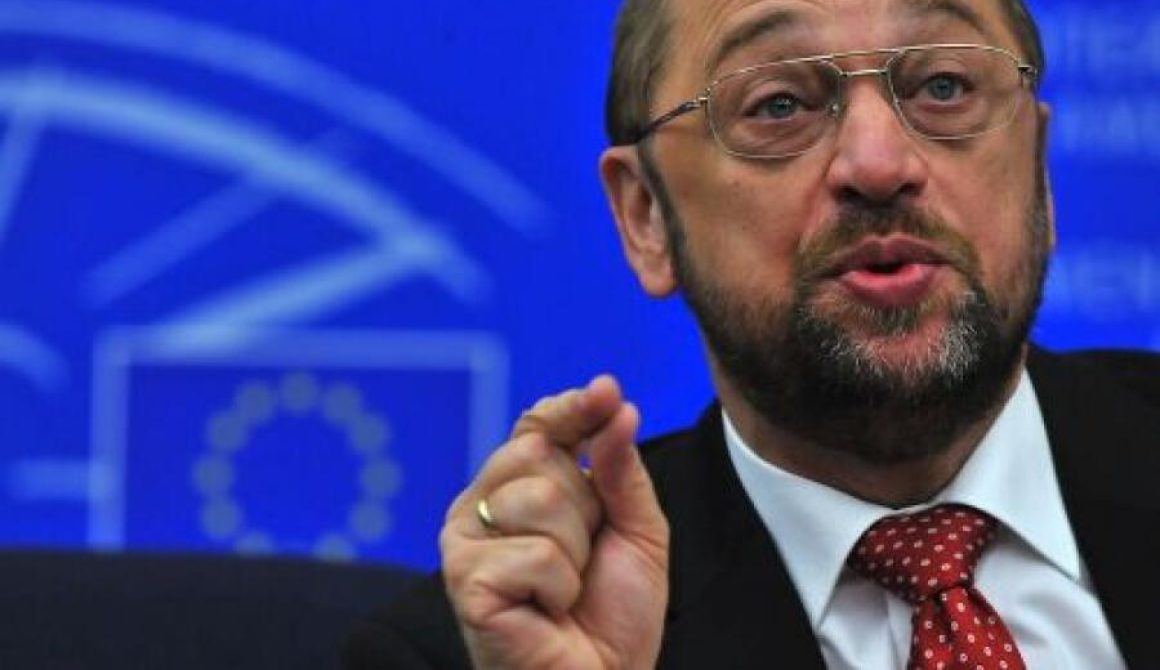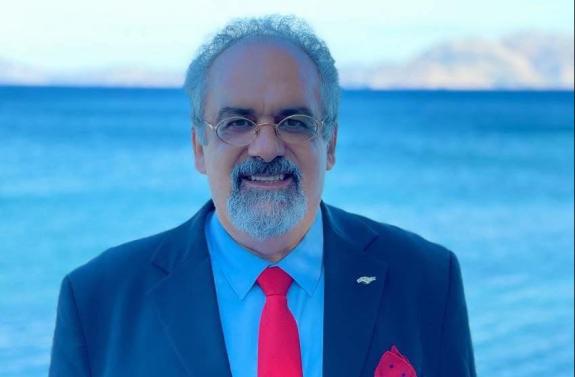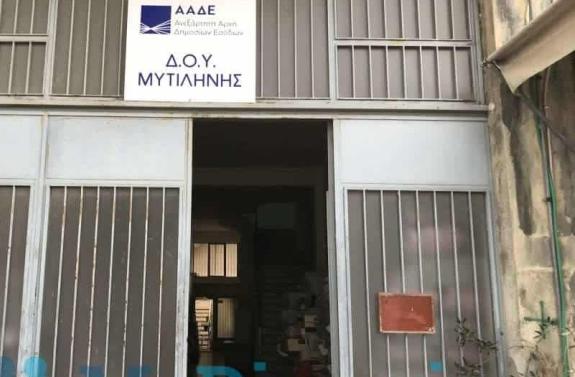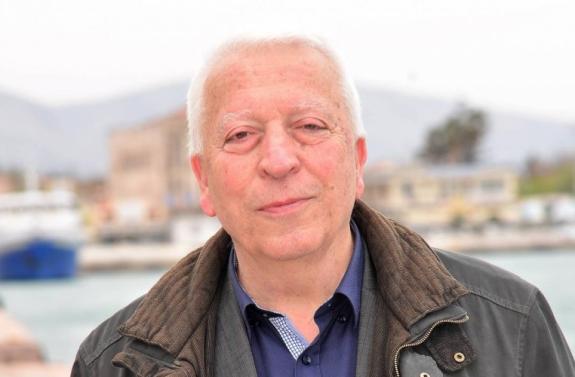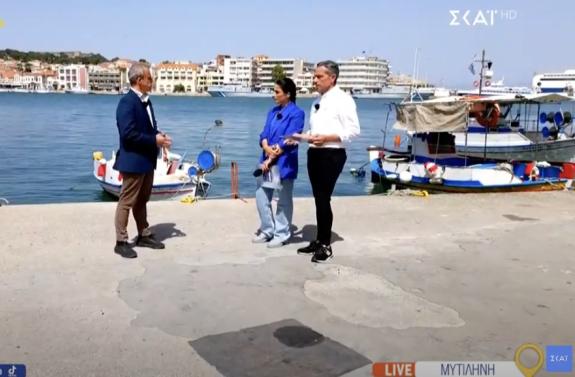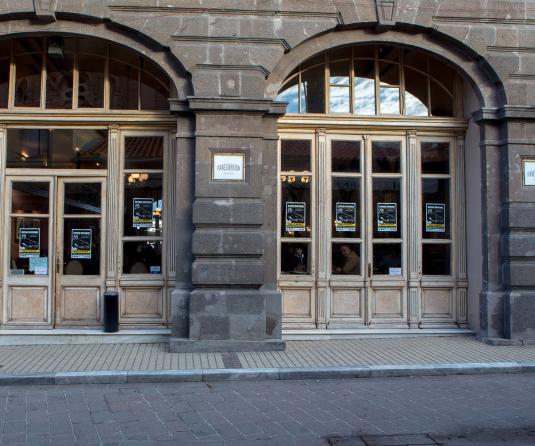Μάρτιν Σούλτς: να μην αφήσουμε αβοήθητη τη Λέσβο
Δίνεται στη δημοσιότητα, ομιλία του Προέδρου του Ευρωπαϊκού Κοινοβουλίου, κ. Μάρτιν Σούλτς, στο άτυπο Ευρωπαϊκό Συμβούλιο για το προσφυγικό, που πραγματοποιήθηκε στη Βαλέτα, πρωτεύουσα της Μάλτας, στην οποία αναφέρεται εκτενώς στην επίσκεψή του στη Λέσβο και στις δράσεις της Ευρωπαϊκής Ένωσης, σχετικά με την προσφυγική κρίση.
Συγκεκριμένα, ο κ. Σούλτς, αναφέρει μεταξύ άλλων, ότι: «Θα πρέπει να διασφαλίσουμε ότι η έκτακτη χρηματοδότηση και η οικονομική ενίσχυση, φτάνει στον προορισμό της όσο το δυνατό γρηγορότερα και είναι διαθέσιμη να απορροφηθεί. Για παράδειγμα, ο Δήμαρχος Λέσβου, κ. Γαληνός, με πληροφόρησε ότι, έχει σχεδόν εξαντλήσει τον ετήσιο προϋπολογισμό του Δήμου, προσπαθώντας να διαχειριστεί την προσφυγική κρίση στις ακτές του. Δεν πρέπει να αφήνουμε αβοήθητες τις τοπικές αρχές, οι περιοχές των οποίων σηκώνουν το βάρος της διαχείρισης».
Στην ομιλία του, ο κ. Σούλτς αναφέρεται ακόμη στην ανάγκη λήψης δεσμευτικών αποφάσεων, αναφορικά με τις διαδικασίες μετεγκατάστασης και την ανάγκη συνεργασίας και κατάληξης των διαπραγματεύσεων με την Τουρκία.
Σε σχετική δήλωσή του, ο Δήμαρχος Λέσβου, Σπύρος Γαληνός, τονίζει: «Με ιδιαίτερη ικανοποίηση διαπιστώνω ότι, οι επισημάνσεις του Προέδρου του Ευρωπαϊκού Κοινοβουλίου, ταυτίζονται απόλυτα με το ολοκληρωμένο κείμενο των προτάσεων του Δήμου Λέσβου, για τη διαχείριση του προσφυγικού – μεταναστευτικού, κείμενο το οποίο είχε δοθεί στον κ. Σούλτς κατά τη διάρκεια της πρόσφατης επίσκεψης του στο νησί μας».
Speech at the Valletta informal European Council on the refugee crisis
Valletta, 12 November 2015
Ladies and gentlemen,
The question today is one of credibility.
Whether emergency decisions taken in previous weeks at the highest level are being implemented on the ground;
Or whether Europe is helplessly looking on as the migratory flows, the criminal networks and unilateral national decisions are dictating the course of events.
Or worse still, whether all these events are leading to the dislocation of European cooperation based on shared values, and to the disappearance of our hard-won freedom of movement.
Last week in Lesvos I was able to witness how dramatic the situation has become. Just as I arrived together with Prime Minister Tsipras, a dinghy was making its way towards us through the waves and people were jumping out and desperately trying to swim to the shore. Not an exceptional event – rather “business as usual”. On that day, more than three thousand people arrived on this one small island.
And dramatic news keeps coming in. Just yesterday we learnt that seven children were among the 14 people who drowned when their boat sank off the northern Turkish Aegean coast.
At the reception facility in Moria, I saw the silent misery on peoples' faces. I met Syrians and Iraqis but also, and increasingly so, many Afghans.
I witnessed the efforts deployed by the Greek authorities there and the great commitment of EU and international agencies and NGOs to deal in the most humane and efficient way with those who arrive. I saw how they were debriefed, fingerprinted and issued with the necessary papers.
There are still, however, a significant number of hurdles before European solidarity can work in practice:
Firstly all levels of national and European administration must ensure that emergency funding and investments reach their destination as quickly as possible and are able to be absorbed. Take the mayor of Lesvos, Mr Galinos – he informed me that he exhausted his entire annual budget already over the summer, dealing with the emergency on his shores. We cannot leave overwhelmed local authorities alone like this.
The Greek authorities' commitment last 25 October to complete all of the designated hotspots in the next days and weeks, and to increase reception capacity in Greece to 30 000 places is therefore welcome. So is the commitment of many countries to support Greece and UNHCR to provide 20 000 more with rent subsidy and host family programmes, and the objective to provide 50 000 further places along the Western Balkans route. These commitments must now be delivered on.
Secondly, all Member States must provide the necessary expertise and staff to FRONTEX and EASO. It is clear that many of your border management and asylum systems are under great pressure, but I was still dismayed to see that only about half of the staff required had been provided by Member States.
Thirdly and crucially, you Member States must implement the existing binding decisions on relocation and put the whole system on a permanent footing, thereby allowing decisions on relocation or return to be taken at the point of first entry and avoiding the current chaos of secondary movements.
I was able to witness last Wednesday the first relocation flight from Greece, and the first flights have also left from Italy. I will remember the smiles of the children and their families embarking on that plane to find a safe shelter in Europe, in this case, Luxembourg.
But let's be honest, if these first steps are not urgently followed up by dozens of such flights in the next days, to all Member States, we will never manage the situation.
European solidarity can work if we all commit to it, but not if we let a small number of countries do all the heavy lifting. Prime Minister Löfven, when your country with a population under 10 million generously takes in close to 200,000 refugees this year alone, it is understandable that you call for more solidarity. The current situation is simply not fair.
Fourthly, staring out from the bay of Mythilini, on Lesbos, towards Ayvalik in Turkey, barely twenty kilometres away, it became all the more clear to me that there is no way out of this global crisis without dramatically enhanced cooperation with our neighbours, countries of origin and transit, and our international partners. On behalf of the European Parliament, I would like to thank especially Prime Minister Muscat therefore for hosting the summit in the last days to focus on our cooperation with African countries.
Concerning Turkey, we would welcome an update from the Commission on the latest talks and on the implementation of our agreements in a spirit of joint cooperation and responsibility, recognising the considerable efforts deployed by Turkey, Lebanon and Jordan in hosting people displaced due to the Syrian conflict, but recognising also the relative freedom with which reckless trafficking of human beings is taking place on a massive scale at our very borders.
Fifthly, those who have no right to stay must be returned, and readmission agreements must be implemented or negotiated, in full respect of international and European law. This is part and parcel of any coherent migration policy based on rules.
Sixthly, the current crisis shows the lack of symmetry between a single external EU border and a variety of national borderguards and coastguards, and the European Parliament therefore looks forward to the Commission's upcoming proposal on a European border and coastguard.
President Juncker also took the welcome initiative to bring together at the end of October the countries on the Western Balkans route to discuss operational coordination, and I trust this is already yielding concrete results. But for sustainable and binding solutions, the Community method with full involvement of the European Parliament and the Council is the only proven way to tackle this crisis as a common European challenge.
Ladies and gentlemen,
The European Union is challenged as never before. This refugee and migration crisis will not go if we turn our heads away. It will only get worse. Globalisation may be visible in our supermarkets or our cinemas. Now, whether we like it or not, it is also arriving on our shores.
Thank you for your attention.

